Valencia in March means Las Fallas
During the first three weeks of March, the annual celebration of Las Fallas is run in the Spanish coastal town of Valencia. It gathers people from all over the world, who come to see one of the most outstanding events in Europe.
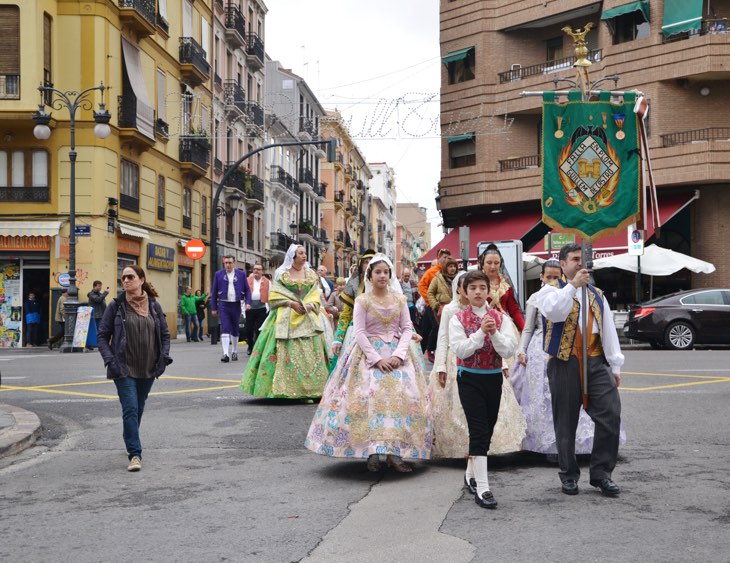
The celebration is held in commemoration of Saint Joseph for at least three centuries. Within these weeks, local authorities permit burning petards, fireworks, and making as noise as you please. The festival terminates with the burning of gigantic puppets fixed in different parts of the town. The puppets primarily represent politicians or famous people, who behaved in an inappropriate manner in the previous year.
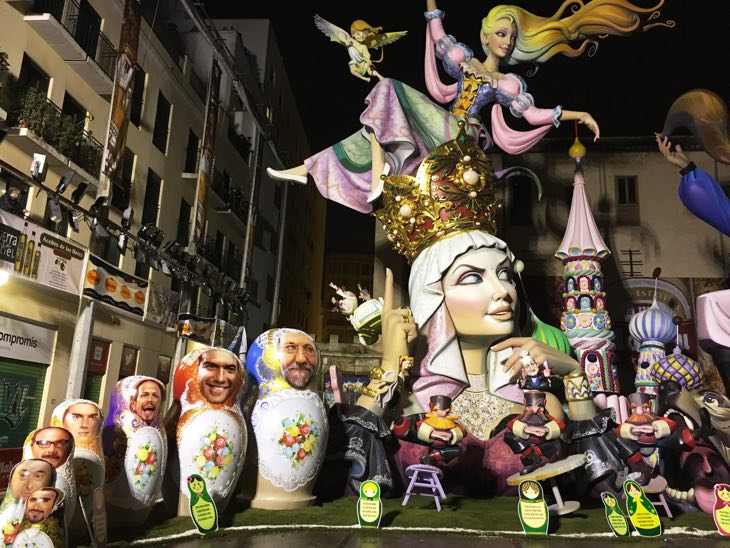
At this time the town is decorated not only with oranges hanging from the trees, but also with flags and glittering garlands. On the third week, it is transformed into a medieval town, where thousands of locals dressed in traditional dresses cross the historical center of Valencia, accompanied by drum and trumpet bands, to lay flowers to the Virgin Mary at the “Plaza de Virgen”.
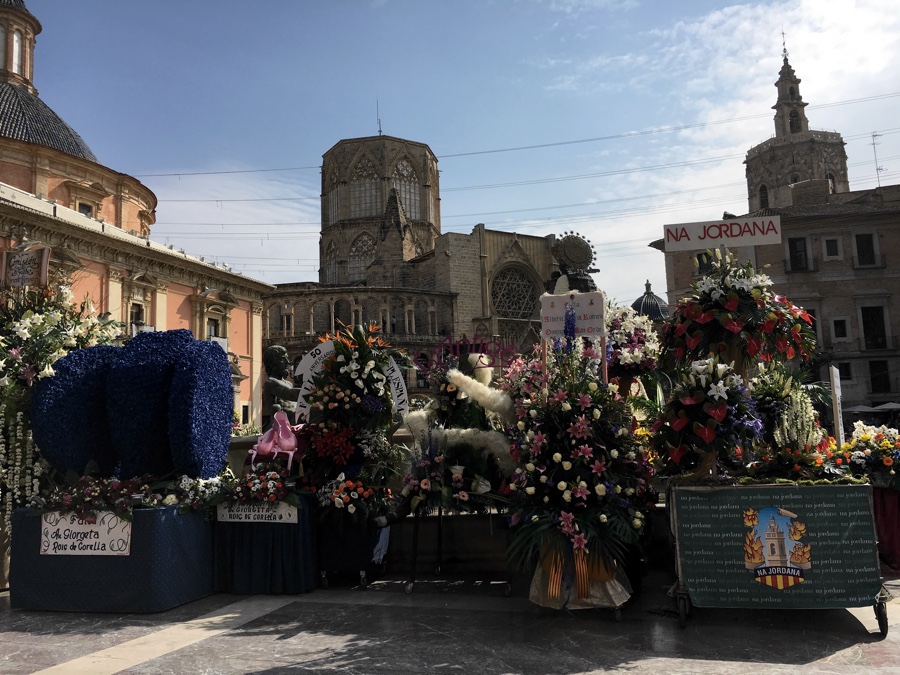
Spanish respect folk traditions, and year after year they take a day off to lay bunches of white flowers and to set an example for their children, so that they can pass this tradition to the future generation and preserve the celebration throughout the next three hundred years.
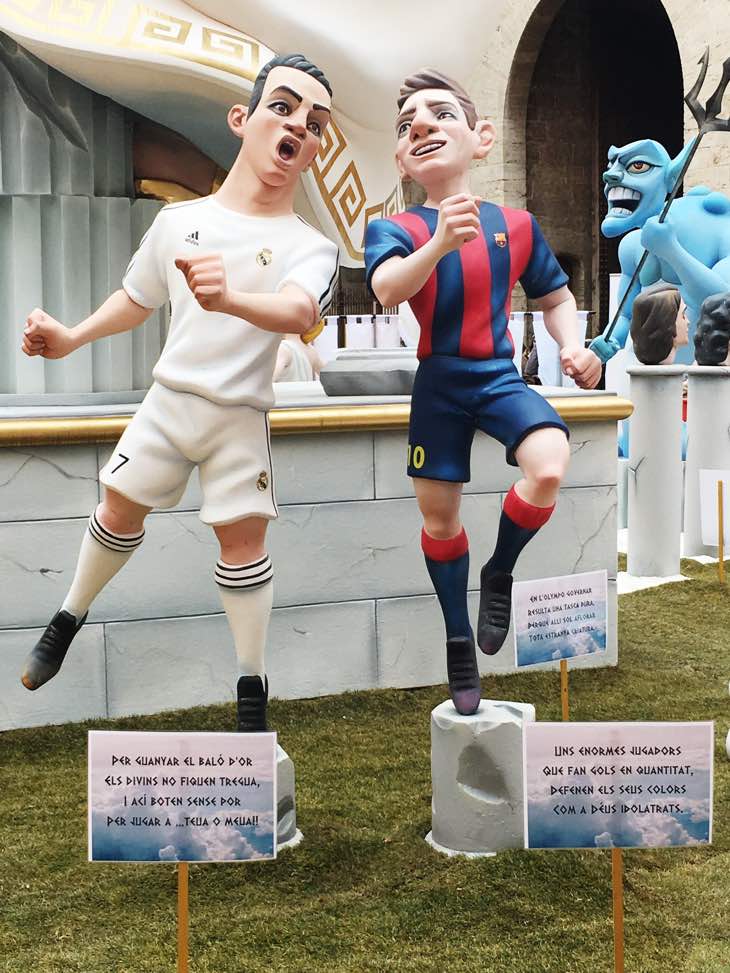
Every day within these three weeks, at 2PM at the main square, Ayuntamiento, you can enjoy the show “Mascleta“. You will definitely need audio protection, since Mascleta is a petard show accompanied by hundreds of explosions and coloured smoke.
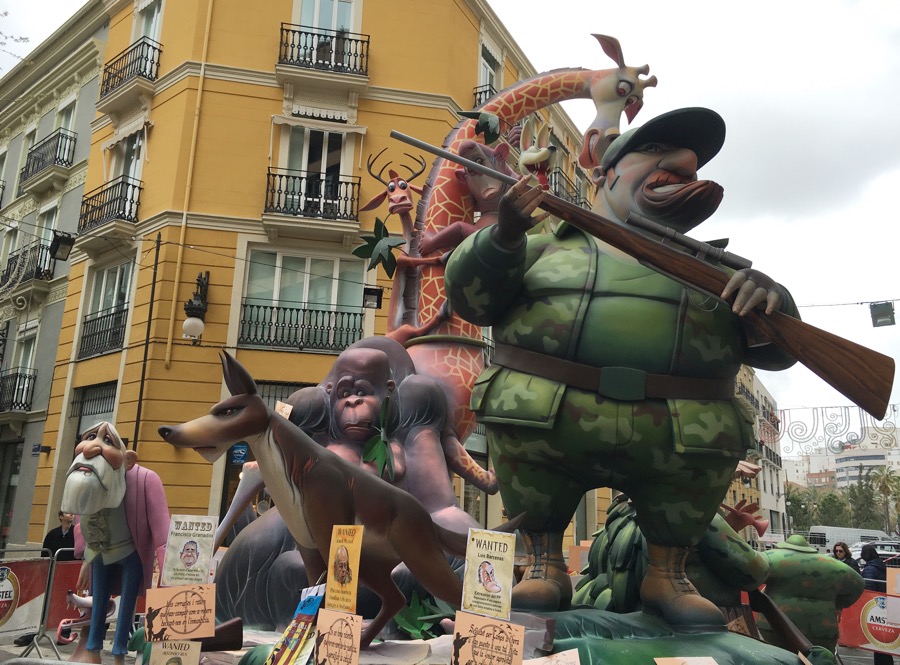
On the last week, the official Las Fallas week, the square is so full that you need “to find a seat” an hour before the show begins; otherwise, you will only hear the petards.
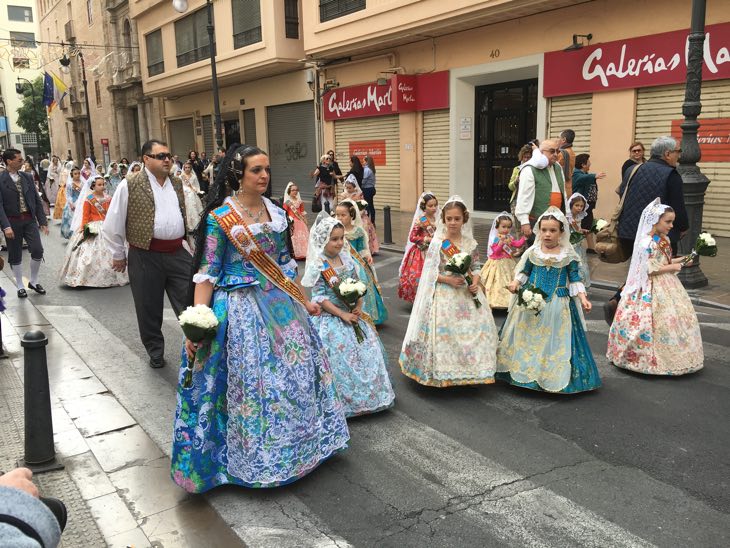
The same is true for Crema – the final night show is held from Saturday to Sunday, when all the big puppets are burned. This night Valencia plunges into the smoke from the burned dolls, petards and fireworks. The petard show can be observed not only at the Ayuntamiento, but also in the suburbs. Thus, we were surprised to watch it at an open metro station at Empalme on Saturday at 2.30 PM.
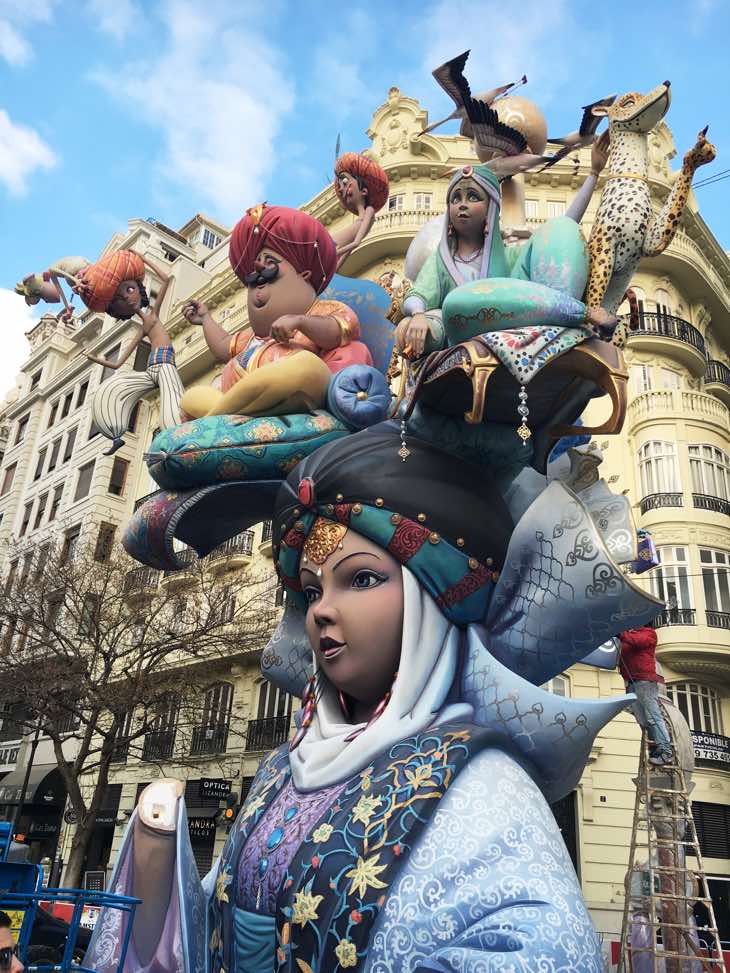
The final official week of Las Fallas is a continuous party, sleepless nights and gastronomical heaven with true paella and croquetas. Every one hundred metres you can enjoy traditional Spanish bakery, such as “churros”, “porras”, and donuts with pumpkin, which are served with sugar or chocolate, but I also advise to try them with whipped cream or orange marmalade made of original Valencian oranges.
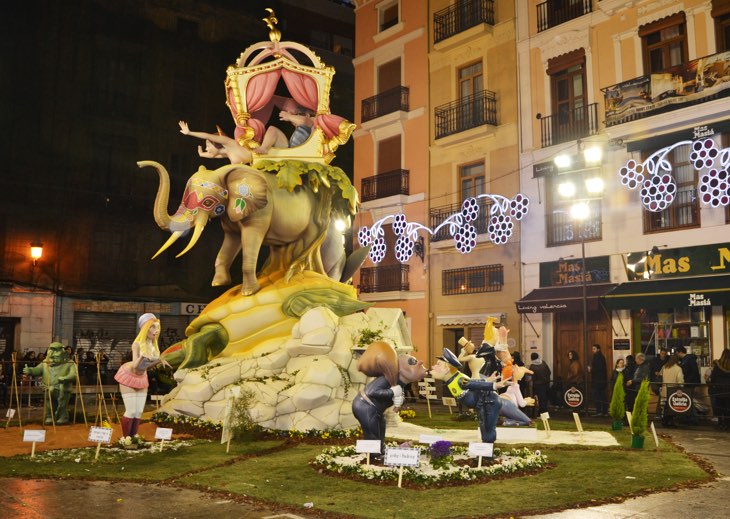
It is important to mention that car traffic in the city center is restricted, being fully pedestrian these days.
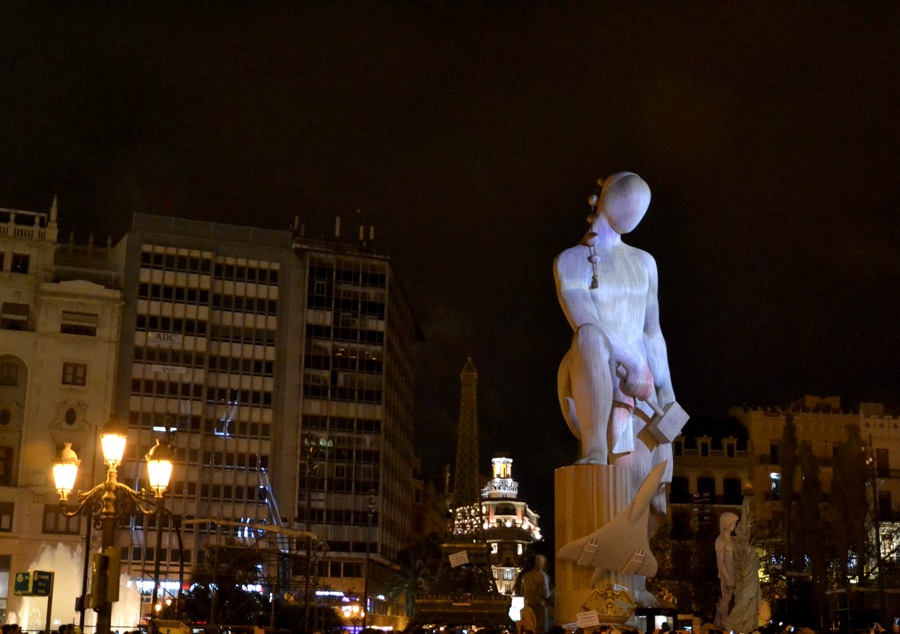
It would be extremely difficult to take a bus or taxi, but the metro is available both at daytime and at night. Parking is also full, so if you are planning to arrive by car, park it in the suburbs and take the metro to get to the main square and other historical sites.
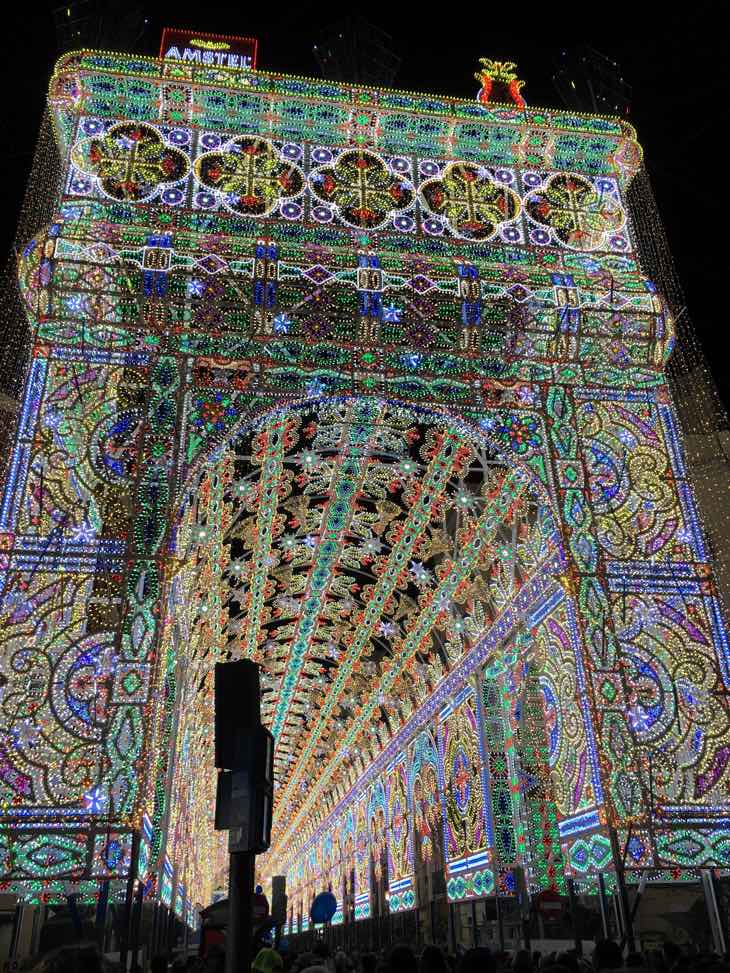
On March 22, the celebration is usually over and Valencia starts preparations for Easter.
_______________________
Read more articles about Spain
Do not forget to leave you comment and to subscribe to our YouTube, Instagram, Facebook and Twitter pages.
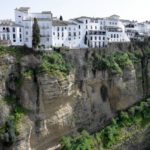 Previous Post
Previous Post Next Post
Next Post
[…] Las Fallas, about which I wrote earlier, we decided to travel from Valencia to France by car. On the way, we stopped at […]